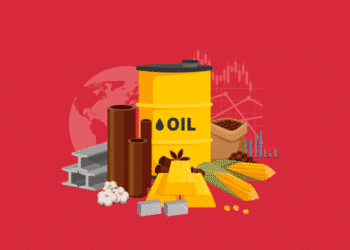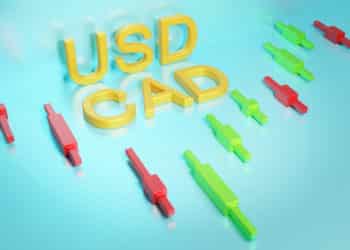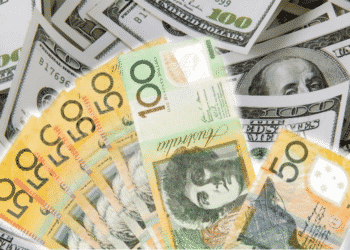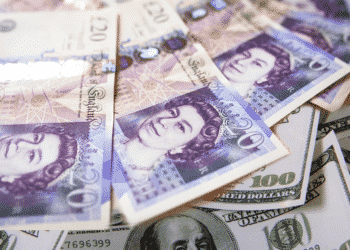In the Forex market, the fundamental analysis considers the economic, political and social factors for one currency relative to the other currency of a currency pair.
Some of these factors have a heavy impact on the currency pair while others may not have a significant impact on the currency pair.
A fundamental analyst tends to observe the key fundamental data to understand the future possible direction of currencies due to the impact of the economic news.
The Economic calendar is particularly useful to predict the impact of the economic news. This impact of economic news can be positive, negative or neutral.
Key Fundamental Information Types:
There are some key fundamental information types that have a heavy impact in the Forex market. These are described below,
Growth:
Growth is expressed as the change in the country’s Gross Domestic Product (GDP) which is very useful to measure the growth of a country. A growing economy of a country strengthens the currency of that country.
This growing economic condition leads the currency to become stronger than other currencies.
Rates:
This includes short-term interest rates, such as Fed Funds Rate which has a significant impact on the currency of that country.
A higher rate attracts more investors to invest in that country which strengthens the currency of the country.
Trade:
The current account balance and trade of a country often contain a significant impact on the currency of that country.
Current account surplus leads the currency to a positive direction while deficit leads the currency to a negative direction.
Economy:
General economic conditions of a country help investors or traders to compare between two currencies.
For example, a boost in the U.S. economy will lead to a bearish impact on EUR/USD. Inversely, a downsize in the U.S. economy might have a bullish impact on EUR/USD.
Key Economic Factors:
Traders or investors keep an eye on the economic calendar to examine the economic factors regularly. The key economic factors have a significant impact on currency pairs which can be forecasted by using the economic calendar.
This forecasting can predict the possible trend direction. We should know these key economic factors and their effects to predict the trend direction. These key economic factors are as follows,
Interest Rates:
A higher interest rate always attracts new investors. If the interest rate of a country is increasing then the currency of that country will become stronger than other currencies.
On the other hand, if the interest rate of a country is decreasing, then the currency of that country will become weaker than other currencies. The high difference between interest rates attracts traders for carry trading.
Inflation:
A country reduces the interest rates to control the increase in inflation when the country is in the inflationary economic cycle.
Consumer Price Index (CPI) and Producer Price Index (PPI) are very useful to identify the inflationary economic cycle.
Trade or Currency Account Balance:
Surplus or deficit in the trade account balance has a significant impact on the currencies. A surplus in the trade account balance of a country indicates the strength of the country and its currency.
Inversely, a deficit in the trade balance of a country indicates the possible weakness of the country and its currency.
Credit:
This is another key economic factor that affects the currency pairs. Credit represents the borrowing of the country from IMF or other nations. If it is high, then it means that the borrowing has increased which plays a negative role in the case of the currency of that country.
Inversely, lower credit is positive news for the currency of the country as it represents a less borrowing figure.
Gross Domestic Product (GDP):
It is a key economic indicator to measure the economic growth of a country. GDP represents the total of goods and services produced by a country which has a heavy impact on the currency of that country.
Commodity prices:
Commodity price has significant on those countries that are the producer, exporter, and importer of commodities.
This effect on the economy of the country and is reflected in the currency of that country.
Employment Data:
The currency of a country will gather strength when the country has an increasing percentage of its citizens employed.
This major economic data comes in the form of jobless claims, payroll statistics and the unemployment rate of a country.
Industrial Production:
A country having a strong industrial base will help its currency to become stronger than other currencies.
Retail Sales:
The overall economy of a country boosts up with a strong retail sales figure. This situation plays a positive role for the strength of the national currency.
Consumer Price Index (CPI):
This represents the inflation of a country. Interest rates tightened with increasing inflation. This tightened interest rate has a negative impact for the national currency.
Other Factors:
Supply and Demand Effects:
Inflow and outflow of capital into a currency often play a vital role in the price movements of currency in the Forex market. The inflow of capital into one currency increase the demand and outflow of a currency increase supply.
Monetary Policy:
The value of a currency can be affected by monetary policy as monetary policy has an effect on interest rates. Interest rates increase, when monetary policy is tighter and decrease when monetary policy is dovish.
Political Influences:
Political unrest may play a negative role for the currency while stable political condition has a positive impact on the national currency.
Uses of Fundamental Information in Technical Trading:
These fundamental and economic factors are valuable for the long term trader or investors. These factors can be used in case of technical trading as major trends are the reflection of fundamental conditions.
These factors can provide a signal for future price and trend change. Fundamental factors play a vital role in the long-term trading.
These factors are also effective for short term trading as the trend is the most important thing for trading whether it is short term trading or long term trading.







